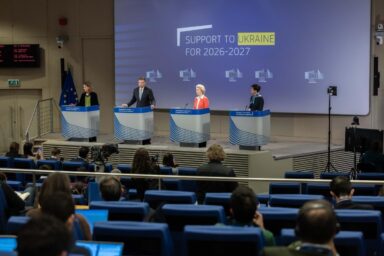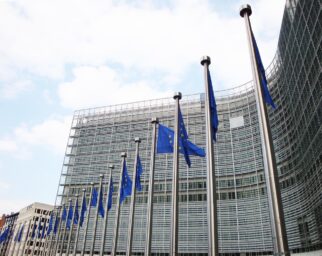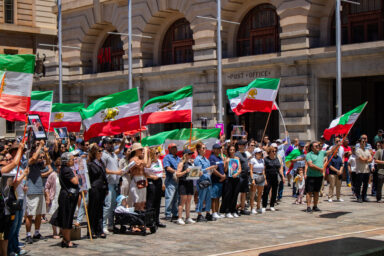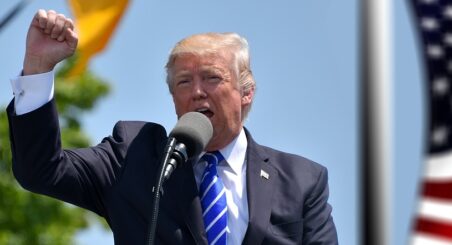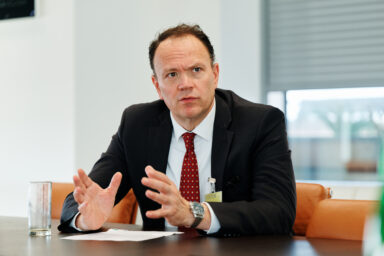Twenty-seven EU ministers hardly ever reach a common position. Friday’s ECOFIN meeting did it almost perfectly: most finance ministers found a common ground in shared dislike of the European Commission’s plan to raise new resources to boost the bloc’s long-term budget.
Finance ministers arrived in Luxembourg on 10 October with many a headache. One was how to keep money flowing to Ukraine. The other—far thornier—was how to refill Brussels’s coffers once the current long-term budget expires in 2027. Stephanie Lose, Denmark’s economy minister and chair of the meeting, sought to concentrate minds on the second task. “We discussed the Commission’s proposal for amending the EU’s system of own resources, the proposal as new contributions as well as also a number of changes to the current own resource system,” she said.
Moments earlier she had spelled out what those changes meant: “This proposal introduces a number of changes to the EU’s system of own resources, including five new own resources based on the carbon border adjustment mechanism, the emission trading system, non-collected e-waste, tobacco excise duties, and an annual lump sum contribution of companies with a turnover of about €100m, also called CORE.”
Piotr Serafin, the EU budget commissioner, pressed the case for action. “So the only way forward is to find new sources of financing for the EU budget,” he insisted. Mr Serafin warned that Europe must pay for defence, innovation and the repayment of the giant Next Generation EU loan. He pleaded for ministers to judge the basket, not the cherries. “Let me stress here that you should not assess a single owned resource in isolation,” he urged, reminding delegates that their predecessors in 1970 had once dreamt of a budget financed without national cheques at all.
You might be interested
No common debt
The plea pleased few. Some, such as Giancarlo Giorgetti of Italy, struck a politely sceptical note. Italy, he said, would “respect the previous political commitments in favour of the introduction of new resources” and agreed that corrections should vanish. Yet he drew red lines. “Any proposal of new resources should not hinder the competitiveness of the European Union, nor impose excessive onus on citizens and companies,” he said, listing qualms about CORE and the data behind the e-waste levy. Austria’s Markus Marterbauer sounded cautiously similar. “I am quite sceptical about the proposed increase in the size of the MFF and thus of our national contributions,” he said, though he could back ETS, CBAM and e-waste.
Not so Germany. Finance minister Lars Klingbeil was blunt. “We reject this proposal,“ he said outright. “We don’t see how these own resources can reach the €44bn stated in the proposal.” He used the occasion to torpedo the entire Multiannual Financial Framework, saying the two trillion framework is too high and impedes competitiveness. Common debt? Not a chance.
We don’t see the need for own new resources. — Elisabeth Svantesson, Sweden’s finance minister
Others offered qualified encouragement. Portugal welcomed new revenue “without duly burdening national budgets” but saw “serious reservations regarding CORE”. Poland applauded CBAM and customs fees but declared bluntly that “Poland maintains its negative position on the ETS proposal.” Slovenia’s Klemen Boštjančič tried to move the debate forward. “I absolutely and honestly support the need to find new direct sources,” he said, floating crypto-taxes as one such novelty.
Unfair and regressive
Northern hawks rained on the parade. Eelco Heinen of the Netherlands rejected the entire package. “The current proposals are not acceptable for the Netherlands,” he snapped, adding that a corporate levy “undermines the EU company’s competitiveness.” Elisabeth Svantesson of Sweden followed suit. “We don’t see the need for own new resources,” she said, urging ministers to “focus on increasing the impact of the money we spend.” Hungary’s Mihály Varga found the scheme “unfair, regressive and cause excessive administrative burden.” Bulgaria called the plans “strongly skeptical” of basic principles.
There is no perfect own resource. — Piotr Serafin, EU budget commissioner
Beneath the rhetoric lay three recurring complaints. First, fairness. Rich contributors dislike the planned scrapping of rebates; poorer ones call the ETS levy regressive. Second, complexity. Several ministers warned that fresh statistical duties would drown customs officers in red tape. Third, competitiveness. CORE in particular drew fire. Mr Giorgetti feared “the potential impact on small businesses and on national markets.” Ms Svantesson saw it as extra cost when firms needed relief.
Damage control mode
Mr Serafin tried to defuse the row. “To clarify, CORE does not apply to 99 per cent of European companies,” he said. Only giants with sales above €750m would pay, “a typical annual bonus of the CEO in such a company,” as he put it. The line drew smiles but changed few minds. Ireland’s Paschal Donohoe warned that “some of the new owned resources could add to costs and burdens faced by member states when estimating and collecting these revenues and could also increase the volatility of member states’ contributions.” Czechia cautioned that CORE “risks to hamper the competitiveness of the EU and its companies.”
While ministers bickered over taxes, war pressed in. Ms Lose reminded colleagues that stopping aid to Kyiv “is definitely not an option.” Yet the same countries that struggle to accept new EU taxes also balk at bigger national cheques for Ukraine. In that sense, the own-resources fight is more than bookkeeping—it decides whether the Union can bankroll foreign policy without squabbling every year.
The Danish presidency will continue to facilitate discussions on this proposal (…) but of course not at all making any decisions at this stage. — ECOFIN President Stephanie Lose
Progress, then, was meagre. Mr Serafin spoke of “constructive negotiations in the months ahead.” Behind the cordial phrasing lurked a gulf. States that value a muscular EU want collective taxes; others prefer national control and a slim budget.
Imperfection, compromises ahead
The Danish presidency hopes for deal-making once the broader 2028-34 budget negotiation tightens screw-turning leverage. For now, each camp repeats familiar lines. “The Danish presidency will continue to facilitate discussions on this proposal within the broader MFF negotiations, aiming at building a common understanding of our future agreement, but of course not at all making any decisions at this stage,” a rather downcast Ms Lose said at a press conference immediately after the meeting.
The upshot is that the Union nears a fiscal cliff with no bridge in sight. Borrowings for the pandemic will need repaying from 2028 onward. New defence pledges mount. If ministers cannot agree on novel revenue, either spending will shrink or national contributions will rise; exactly what most delegations reject. As Mr Serafin told them, “There is no perfect own resource.” The imperfect ones on offer still face a gauntlet of parliaments and, in some cases, national referendums.
ECOFIN’s October session ended as it began, with promises to talk. As officials exited the Justus Lipsius building, the feeling was tangible of Europe wishing for things it refuses to pay for. The hope is that the next meeting may, for all the tough talk, bring fresh compromise. Until then the own-resources dilemma remains unsolved.

